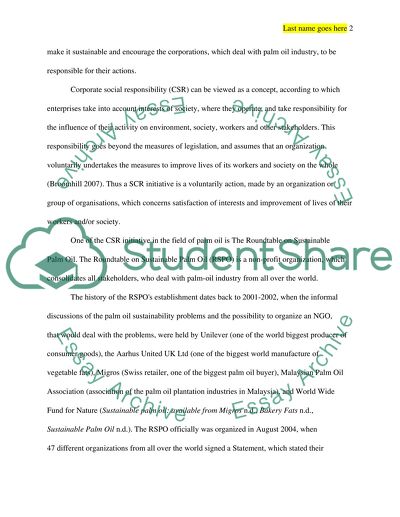Cite this document
(“Unilever's participation in the Roundtable on Sustainable Palm Oil Essay”, n.d.)
Unilever's participation in the Roundtable on Sustainable Palm Oil Essay. Retrieved from https://studentshare.org/miscellaneous/1674376-unilevers-participation-in-the-roundtable-on-sustainable-palm-oil
Unilever's participation in the Roundtable on Sustainable Palm Oil Essay. Retrieved from https://studentshare.org/miscellaneous/1674376-unilevers-participation-in-the-roundtable-on-sustainable-palm-oil
(Unilever'S Participation in the Roundtable on Sustainable Palm Oil Essay)
Unilever'S Participation in the Roundtable on Sustainable Palm Oil Essay. https://studentshare.org/miscellaneous/1674376-unilevers-participation-in-the-roundtable-on-sustainable-palm-oil.
Unilever'S Participation in the Roundtable on Sustainable Palm Oil Essay. https://studentshare.org/miscellaneous/1674376-unilevers-participation-in-the-roundtable-on-sustainable-palm-oil.
“Unilever'S Participation in the Roundtable on Sustainable Palm Oil Essay”, n.d. https://studentshare.org/miscellaneous/1674376-unilevers-participation-in-the-roundtable-on-sustainable-palm-oil.


